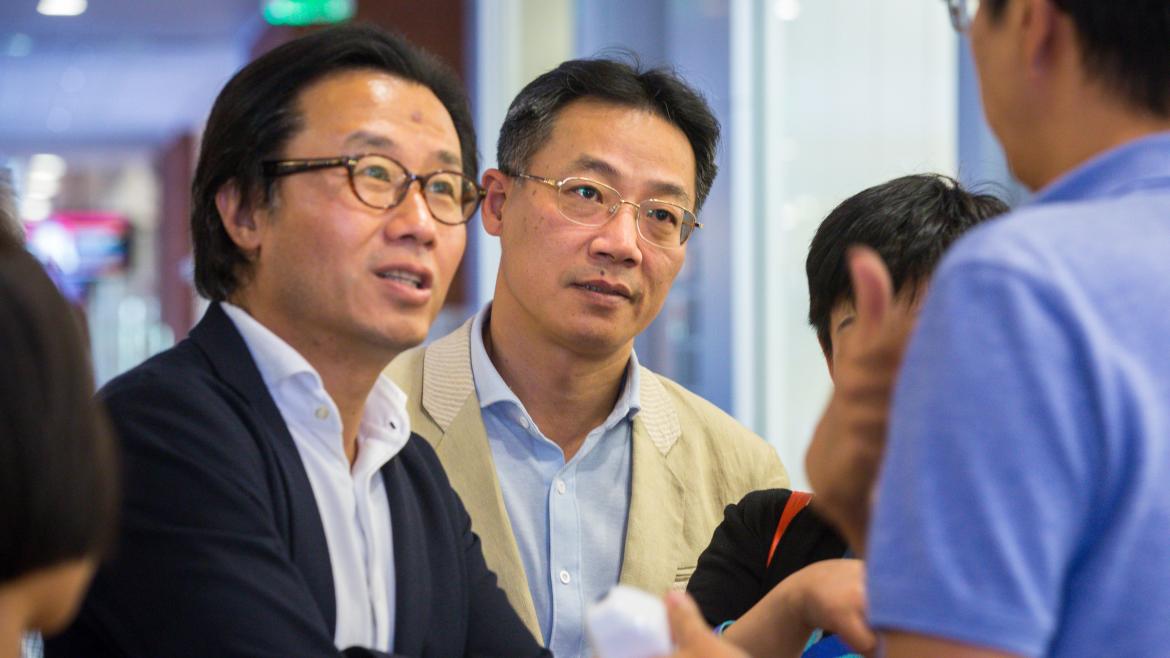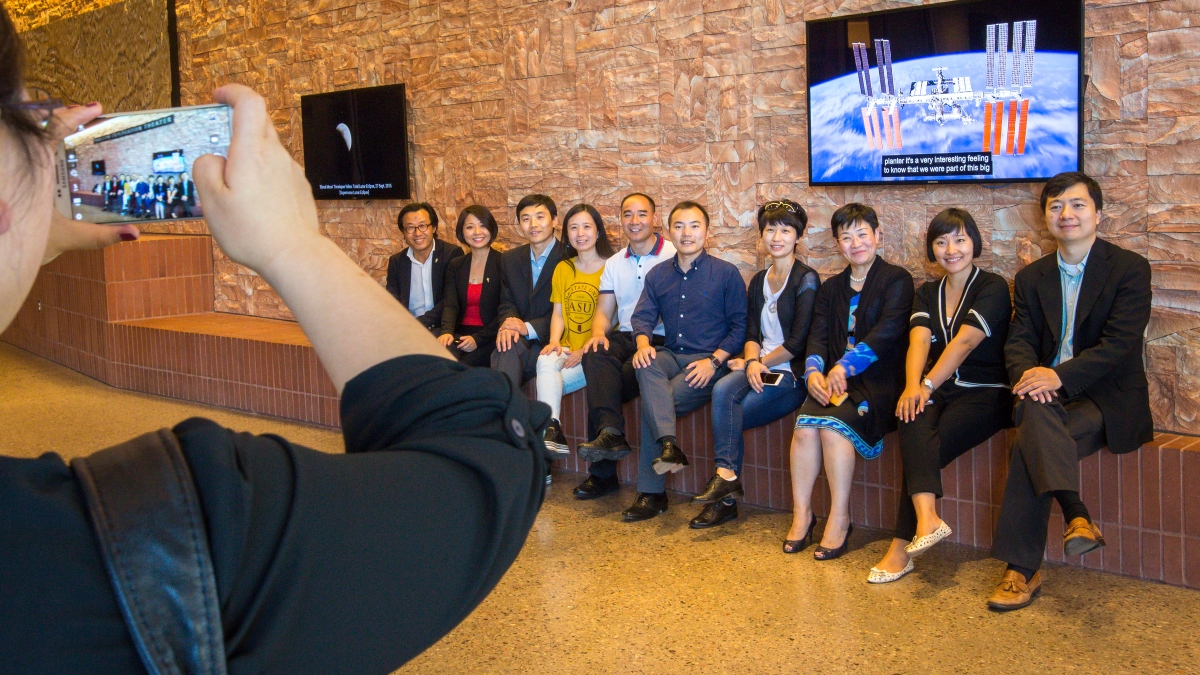Paul Yang wasn’t expecting an ambient temperature of 108 degrees when he agreed to play golf with Arizona State University professor Buck Pei, but he played through all 18 holes anyway.
Yang was in Phoenix as part of the Doctor of Business Administration (DBA) in Global Financial Management program, a partnership between ASU’s W. P. Carey School of Business and the Shanghai Advanced Institute of Finance (SAIF) for senior corporate and government leaders in China.
In the past 10 years the amount of wealth in China has increased dramatically — on a national level, an individual level and a corporate level. This pace of change is profoundly affecting not only China's domestic situation, but also the global economy.
As a result, industry leaders like Yang are seeing a huge demand for wealth management in the country — one that Pei, executive dean of the W. P. Carey School, sought to address when he established the three-year doctoral program in 2012.
“The demand for DBA programs, especially in global financial management, presents a huge opportunity for us to recruit the highest potential candidates who will have important influence over the future of China’s financial market and government sectors,” Pei said.
Along with a cohort of 13 other students from China — who include successful managers, heads of banks, heads of public trade companies and market developers — Yang spent four days in Arizona visiting companies like Honeywell, GoDaddy and Charles Schwab to speak with experts in the field.

Chinese executives tour ASU
Paul Yang, left, and Michael M.J. Sun listen as they explore the Biodesign Institute on the Tempe campus as part of their scholastic program, while on a tour of the U.S., on Friday, Oct. 2, 2015. Photo by Charlie Leight/ASU Now
Three days in New York City on Wall Street was also on their itinerary.
The founder and managing partner of his own asset-management company, Yang is using this opportunity to look for international investment opportunities.
“Companies like GoDaddy, they’re very big companies but they have very little exposure to Asia, to China, which is such a big market,” he said.
Michael Sun, deputy chief executive of the Bank of East Asia (China), said that what they learned in the program and during their visit to the Valley has given them valuable perspective.
“There are several companies in China that can learn from the ideas of [these] companies,” Sun said.
Conversely, both Yang and Sun agree that American companies can also benefit from the program because it allows for invaluable international exchange among industry players.
“Through this ASU program, [American companies] can network with myself and my fellow classmates. … With our help, they can see crystal clear how to get into the Asian market,” Yang said.
Co-director of the program and faculty adviser to Yang, Bin Gu says the exchange between faculty and students in the program parallels the exchange between the students and U.S. companies.
“They have lots of insights and they have lots of interesting questions in mind, and in many cases we don’t have those answers. We learn from them, too,” he said.
More Business and entrepreneurship

Scrappy, adaptive, inventive: A fireside chat with GoDaddy’s Bob Parsons
GoDaddy founder, Vietnam War Marine veteran and New York Times bestselling author Bob Parsons joined Arizona State University President Michael Crow for a fireside chat at ASU’s MIX Center in Mesa on…

Why consumers are flying high this holiday season
A few years ago, the airline industry was in serious trouble.The COVID-19 pandemic crippled travel, and U.S. airlines received $54 billion in taxpayer bailouts, according to the U.S. Department of…

Being kind with in-kind donations
Charities and nonprofits with retail stores must walk a fine line when accepting in-kind donations from the public.If they turn away items they can’t use, they could appear ungrateful. But if they…
